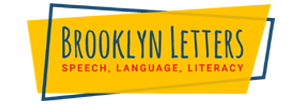Social skills refer to the set of unwritten rules that facilitate effective interaction with others at home and in the community. These skills impact appropriate classroom behavior, study skills, and the ability to sustain age appropriate friendships.
In Autism Spectrum Disorder (ASD), deficits in social-communication skills can have a profound effect on functioning and well-being. ADHD, mood disorders, and anxiety disorders are associated with social skills difficulties as well. In addition, one may present with social skills deficits without meeting criteria for a disorder.
One intervention for improving social skills is involvement in a social skills group. However, it is important that the group be carefully selected to ensure that it is an appropriate match for the participant. In this article, I plan to outline the features that I have found make for a successful social skills group. Please keep in mind that these characteristics are based on impressions from my experience.
1. A group should consist of children around the same age and verbal ability:
Ensuring that the other participants are of about the same age and verbal ability will maximize opportunities for socialization.
2. Look for a small-sized group, or a group with more than one leader:
To my knowledge, there is no magic number for how many children should be in a social skills group. I can say from experience, however, that smaller groups allow leaders to provide more individualized training to group participants, as well as the opportunity to offer more intensive behavioral support. Social skills dyads (groups consisting of 2 children) can be very effective if the children are well matched. However, the downside may be less consistent treatment, as the group will be canceled if one participant is unavailable.
3. Parent Involvement:
Parent involvement is very important for skill generalization. Some research has shown that while participants are able to acquire skills within the social skills group, they may not show these skills in other settings, such as home, school, and community.
I recommend that parents share their concerns with the group leader prior to the date when their child will begin attending group. Supporting documentation, such as previous evaluations, letters from teachers, etc. are also informative for group leaders. I also suggest that parents ask to review the group curriculum. The curriculum should reflect at least some of the skills on which your child is working to improve.
Once group attendance has begun, regular communication between parents and leaders is important for gauging progress across settings. In addition, if homework assignments are not being given, parents should ask the leaders what exercises they can do at home to practice the skill and provide regular feedback on how their child responds to these exercises.
In addition, play dates can serve as an excellent venue for facilitating effective social interaction. Ask the group leader for suggestions about games that one can organize during a play date that promote social-communication, as well as strategies for managing social-interaction during a play date.
In summary, social skills are required of us every day and in various settings. Improving social skills requires consistent practice across these settings. Social skills groups can be very helpful when they are focused on specific goals. Groups should facilitate interaction in a way that mirrors real life situations and demands, and that encourages participants to expand their social behavioral repertoire.
Jennifer (Rodman) Keluskar, Ph.D. is a licensed clinical psychologist whose areas of specialization include Autism Spectrum Disorder and other developmental disabilities, behavior management, and anxiety disorders. She can be contacted at [email protected] or (347) 974-1106.
Craig Selinger
Latest posts by Craig Selinger (see all)
- Private-Pay NYC SETSS: Special Education Teacher Support Services - June 29, 2022
- 7 Do’s and Dont’s of Teaching Self-Control to Young Children - June 11, 2022
- 8 Tips to Help Parents Practice Positive Parenting - June 11, 2022
